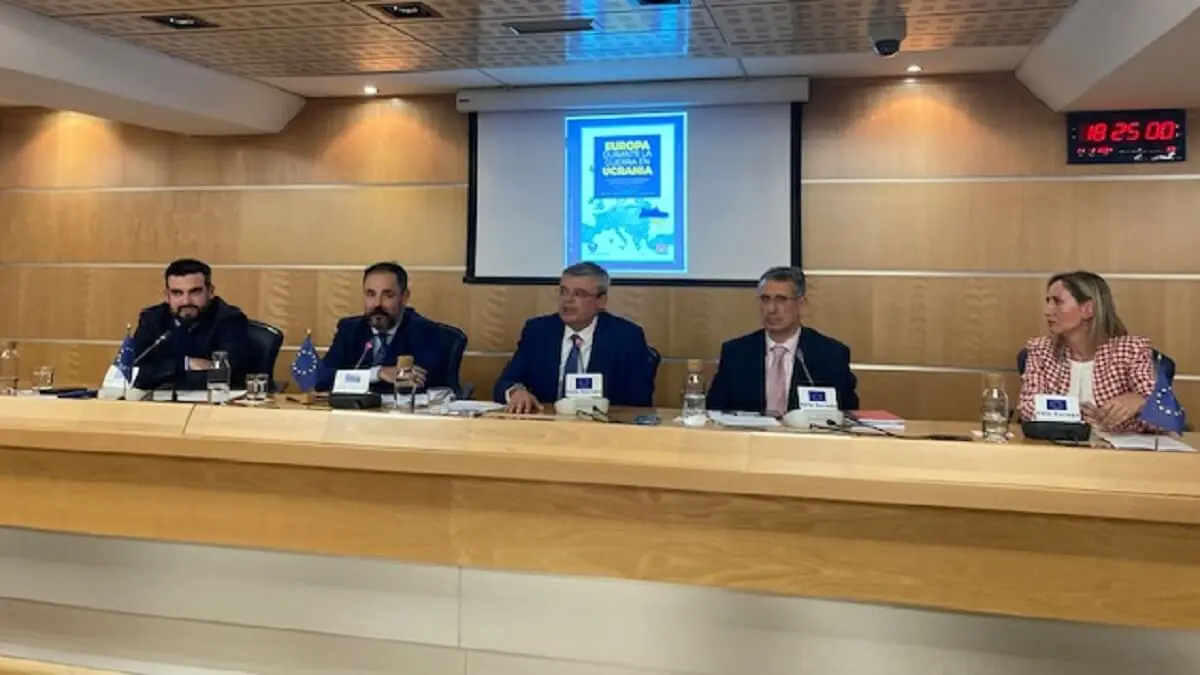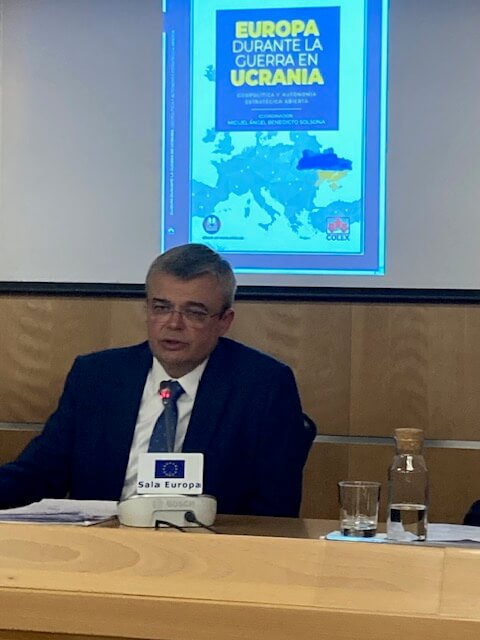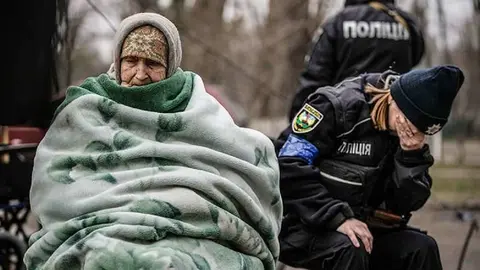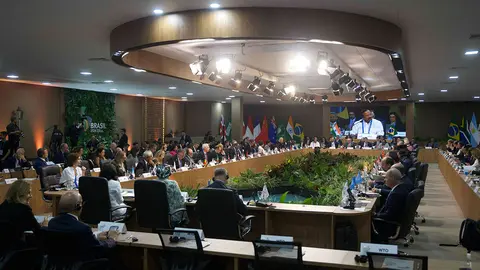Europe during the war in Ukraine

It is two years since the beginning of the Russian invasion and, apart from the immense destruction that the incessant bombardments are causing in Ukraine, the main global conclusion that can be drawn from this dramatic chapter in world history is the radical change of perspective it has caused in Europe.
The European Union, which since its foundation has based all its external action and projection on so-called soft power, supported by a geopolitical architecture based on respect for the rules, has discovered that it has to enter the tempestuous struggle for power. This means coming to terms with the reality that solid economic strength and an extension of its values through persuasion alone is no longer enough. As has always been taught in schools of diplomacy and international relations, sufficiently strong and deterrent military power is essential to defend against attacks and attempts at destruction by the adversary or enemy.
Book "Europe during the Ukrainian War"
This is the main general conclusion of the book "Europe during the Ukrainian War" (Ed. Colex, 250 pp.), coordinated by Miguel Ángel Benedicto and in which some fifteen professors and lecturers from various Spanish universities have participated.
The document, presented at the headquarters of the European institutions in Madrid, stresses that the bombings and deaths in the Ukrainian streets were inconceivable in today's Europe. The European Union," repeated authors such as José María Peredo and Álvaro Imbernón, "was created to seek peace with the DNA of a normative and commercial power that lacks hard military power". Thus, Europe has had to forcefully wake up to start speaking the language of power, a consequence of the repercussions that the war in Ukraine has had and continues to have at the political, military, environmental and refugee levels.
A new scenario has thus emerged, at a time of change in the process of globalisation, forcing Brussels to opt for an open strategic autonomy in terms of health, food and energy. A Europe that has understood the need to reindustrialise vis-à-vis China and the United States, while at the same time making its competition policy more flexible and seeking a new mandate for the European Central Bank in times of war.
Ukraine's current ambassador to Spain, Serhii Pohoreltsev, present both at the book launch and as the writer of the book's foreword, admits the bath of tragic reality into which this unwanted war has plunged both his own country and the whole of Europe: "We liked to believe that, after the fall of the Berlin Wall, the demise of the USSR and the Balkan war, people and politicians alike would have learned the lessons of their tragic 20th century history. We thought that modern European nations, including the defunct imperial powers, now free of any resentment and eager to live in peace with their neighbours, would choose to intensify their trade relations, become economically and culturally richer and prosper".

In light of this disappointment, Pohoreltsev reiterates President Volodymyr Zelensky's oft-stated view that the best contribution to the security of the European continent would be to have Ukraine fully integrated into both the EU and NATO, "a prospect that will discourage Moscow from pursuing its imperialist plans, at least in Eastern Europe".
For their part, the authors conclude with a catalogue of conclusions, which are translated into recommendations to the Commission and the European Parliament. These range from balancing the regulatory burdens on European operators vis-à-vis foreign ones to implementing, with sufficient resources, an effective system for controlling foreign investments that impact on the European market; from changing the perspective on corporate mergers to strengthening the European identity through trust, security and independence of internal operators in order to stay afloat even in times of geopolitical and transnational economic tensions.
There is no doubt, then, that the impact of the war in Ukraine has affected the course of the EU's history, and is changing the perhaps overly idyllic vision of its citizens, who are becoming aware that their paradise is not self-defending, that efforts must be redoubled and many means must be taken from other chapters to acquire the military power that had been voluntarily relinquished in the clearly mistaken belief that it would last forever.



